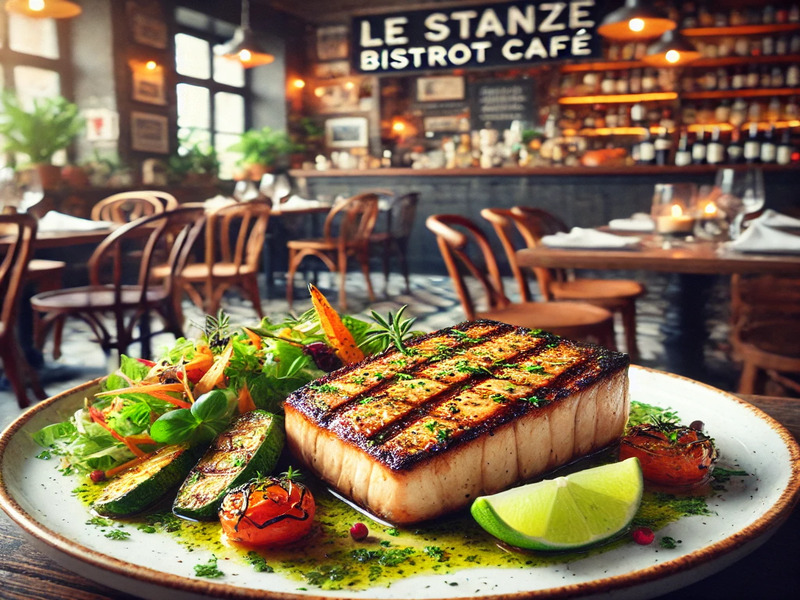Le Stanze Bistrot Cafe Observing political conversations in cafes shows how ordinary talk over coffee reflects deep polarization, shared frustrations, and small moments of democratic hope.
Cafes as Informal Arenas of Democracy
When people engage in political conversations in cafes, they turn a casual social space into an informal arena of democracy. Opinions clash, stories are traded, and everyday concerns meet national debates. These chats are rarely polite debate club encounters. Instead, they mix emotion, sarcasm, and personal experience.
In addition, cafes create a setting where strangers can overhear and sometimes join in. The background noise offers a sense of safety. People feel less exposed than in a formal meeting or online thread. Therefore, they often speak more honestly, sometimes more harshly, and occasionally more empathetically.
Unlike social media, where algorithms push extremes, cafe talk still depends on who shows up. That randomness can soften polarization or intensify it, depending on who sits at the next table.
How Polarization Sounds Over Coffee
Listen closely to political conversations in cafes and polarization has a distinctive sound. People often speak in “us versus them” terms. They describe opponents as ignorant, corrupt, or brainwashed. Meanwhile, they frame their own side as logical, moral, and unfairly attacked.
However, polarization in person still differs from polarization on screens. Facial expressions, pauses, and tone of voice reveal doubt and nuance. A person who sounds absolute online may sound conflicted when explaining a position face to face. As a result, the conversation can soften, even when the words remain sharp.
On the other hand, group dynamics can push people to perform for their friends. Laughter at a cruel joke or applause for a harsh insult rewards the loudest voice. That pressure can drive people toward more extreme statements than they truly believe.
What People Really Argue About
Despite references to elections, parties, or politicians, many political conversations in cafes revolve around daily life. People complain about rising prices, traffic, health care queues, or the cost of school supplies. Politics enters when they search for someone to blame or a promise to believe in.
Identity also plays a major role. People talk about feeling ignored as rural voters, overtaxed as small business owners, or stereotyped because of religion, ethnicity, or profession. Even so, they rarely use academic terms like “structural inequality.” They reach instead for stories: a cousin denied a loan, a neighbor fired unfairly, a friend pushed out by gentrification.
These stories matter. They shape how people interpret headlines and campaign slogans. When those stories spread through political conversations in cafes, they can reinforce misinformation or, alternatively, challenge it with firsthand experience.
The Role of Food, Space, and Body Language
The physical setting of political conversations in cafes changes how people speak and listen. A small, quiet cafe encourages lower voices and longer pauses. A crowded chain with loud music pushes people to raise their volume and simplify their points.
Body language often reveals more than the words themselves. Folded arms, a turned-away torso, or a forced smile show discomfort. Leaning forward, open palms, and eye contact signal curiosity. Therefore, someone listening carefully can see shifts in mood that never appear in a printed transcript.
Food and drink also create rhythm. People take a sip to buy time before answering a hard question. They look at their croissant instead of their friend when they disagree. These small gestures help prevent some conflicts from exploding, though they cannot erase deep resentments.
What Eavesdropping Can Teach (and Where It Fails)
Careful listening to political conversations in cafes can reveal trends before they appear in polls. New grievances, conspiracy theories, or hopeful slogans often show up first in casual talk. People test phrases, see how others react, then keep or drop them.
Read More: How everyday conversations reveal the emotional roots of political polarization
Nevertheless, overhearing talk in one neighborhood cafe does not represent an entire city, much less a whole country. A hip urban coffee bar attracts a different crowd from a highway diner or small-town bakery. Each location is an echo chamber of its own, shaped by class, age, and culture.
Because of this, anyone drawing conclusions from political conversations in cafes must stay humble. These snapshots show possibilities, not complete pictures. They highlight emotions and narratives, not statistical averages.
From Venting to Organizing
Despite their limitations, political conversations in cafes sometimes lead to real action. A chat that starts with complaining can drift toward planning. People share links to petitions, schedule attendance at a protest, or decide to visit a town hall meeting together.
After that, the cafe becomes a base for small-scale organizing. Activists meet there to draft flyers, prepare social media campaigns, or coach new volunteers. As a result, an ordinary table near the window becomes a strategic command post.
Yet many conversations never reach that stage. They stay in the realm of venting and ironic jokes. For some, that is enough: the goal is emotional relief, not political change. For others, this inaction deepens cynicism, reinforcing the idea that “nothing ever changes.”
Listening Without Losing Your Mind
Engaging directly in political conversations in cafes can be exhausting, especially when tempers flare. However, there are ways to listen without burning out. Setting internal limits—on time, topics, or tone—helps protect mental health.
One useful approach is to ask sincere questions rather than immediately countering arguments. “What makes you feel that way?” or “When did you start thinking this?” often reveals experiences behind strong opinions. That context may not make you agree, but it can reduce the urge to dehumanize the speaker.
At the same time, it is reasonable to walk away from aggressive or abusive talk. Boundaries matter, even in public spaces. Respectful political conversations in cafes require at least minimal willingness to listen on all sides.
Why These Cafe Talks Still Matter
In an age dominated by feeds and comment sections, political conversations in cafes may seem quaint or minor. Yet they still show how democracy actually feels at the ground level. Hopes, fears, jokes, and grudges all collide over cups of coffee and plates of pastries.
As long as people keep meeting face to face, these talks will continue to matter. They show whether neighbors can disagree without hatred, whether families can argue without breaking, and whether friends can challenge each other while staying at the same table. Ultimately, the future of civic life depends not only on institutions and elections, but also on how we handle political conversations in cafes during an ordinary afternoon.



